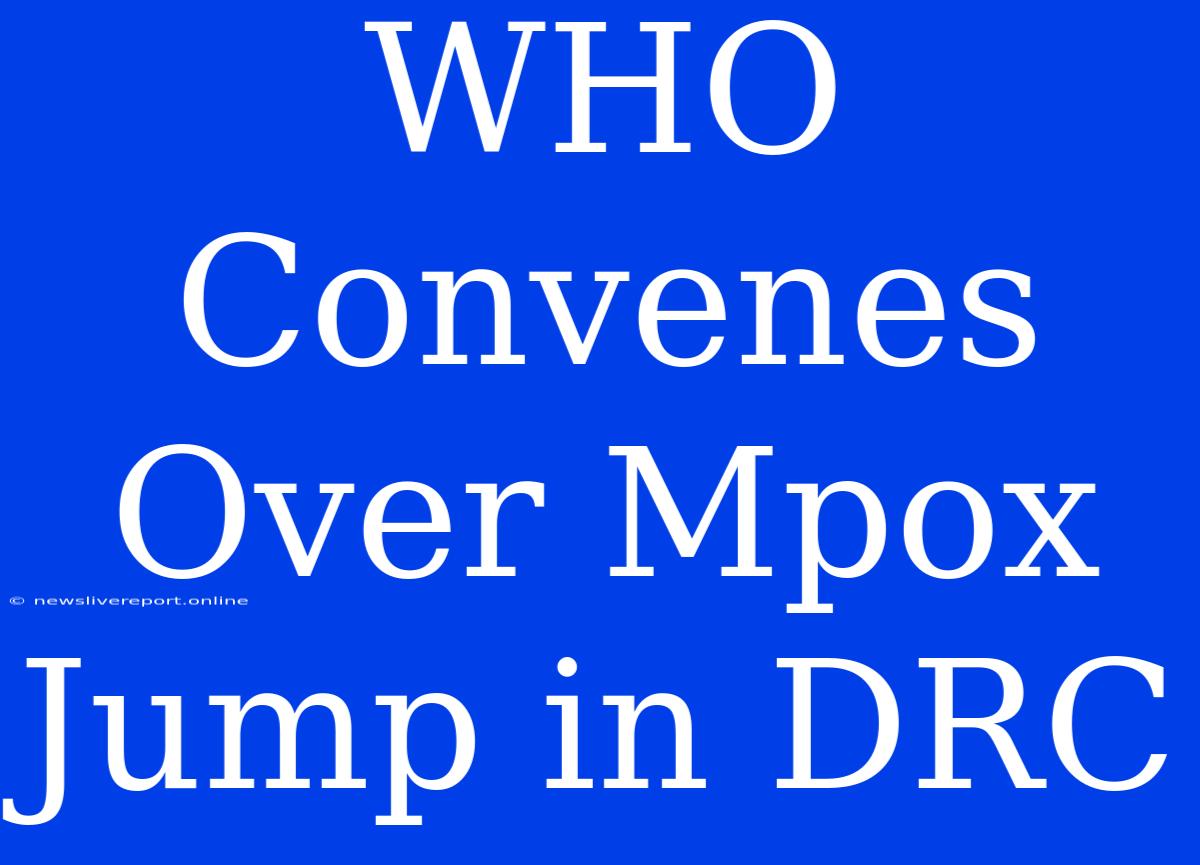WHO Convenes Over Mpox Jump in DRC: A Cause for Concern?
The World Health Organization (WHO) has convened an emergency meeting to discuss a concerning surge in Mpox cases in the Democratic Republic of Congo (DRC). The country has witnessed a significant rise in reported cases, raising concerns about the potential for a wider outbreak. This article will delve into the situation, exploring the reasons behind the surge, the potential implications, and the WHO's response.
A Surge in Cases: What We Know
The DRC has been grappling with a protracted Mpox outbreak since 2021. However, recent data reveals a marked increase in reported cases. This surge has prompted the WHO to act swiftly, calling for an urgent meeting to assess the situation and discuss necessary actions.
The following factors are believed to be contributing to the surge:
- Limited Access to Healthcare: The DRC faces significant challenges in providing adequate healthcare services, particularly in remote areas. This makes it difficult to track and manage outbreaks effectively.
- Weakened Immune Systems: The ongoing conflict and humanitarian crisis in the DRC have led to widespread malnutrition and weakened immune systems, making the population more susceptible to infectious diseases.
- Transmission Dynamics: The exact mechanisms behind the recent surge in cases are still under investigation. However, experts suggest factors like increased contact with infected animals and human-to-human transmission might be contributing factors.
Potential Implications: A Regional Threat?
While the DRC is currently the epicenter of this surge, the potential for the outbreak to spread to neighboring countries and beyond remains a real concern. This is especially worrisome given the ongoing global Mpox situation and the potential for new variants to emerge.
The following implications need to be carefully considered:
- Increased Strain on Healthcare Systems: A wider outbreak could overwhelm already strained healthcare systems in the region, leading to a shortage of resources and potentially hindering the ability to manage the situation effectively.
- Economic and Social Disruption: The outbreak could have significant economic and social consequences, leading to disruptions in trade, travel, and daily life.
- Global Spread and Emergence of New Variants: The potential for the virus to spread globally and evolve into new variants poses a major threat to public health, potentially requiring further public health interventions and vaccine development.
WHO's Response: A Call for Action
The WHO's swift response to the situation highlights the organization's commitment to addressing the global public health challenges posed by Mpox. The emergency meeting aims to:
- Assess the Situation: Gain a comprehensive understanding of the current outbreak, including the extent of the surge, transmission dynamics, and risk factors.
- Coordinate Response: Collaborate with national and regional authorities to develop and implement an effective response strategy, including surveillance, case management, and prevention measures.
- Provide Resources and Support: Offer technical and financial assistance to the DRC and other affected countries to strengthen their public health infrastructure and response capacity.
Conclusion: A Critical Moment for Global Health
The recent surge in Mpox cases in the DRC serves as a stark reminder of the ongoing threat posed by this virus. The WHO's emergency meeting underscores the importance of coordinated global action to address the situation and prevent further spread. By strengthening surveillance systems, improving access to healthcare, and implementing effective prevention measures, we can mitigate the risks posed by Mpox and protect global health.

